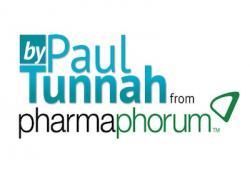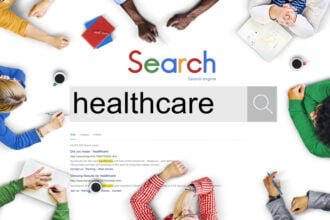 As much as we like to think of ourselves as individuals, our habits are pretty predictable based on who we are – and who our peers are. Physicians are no exception. And that means it’s not hard to identify a few patterns in how doctors use technology. Understanding the trends can help CIOs and CEOs make policy and technology decisions that lead to efficient healthcare.
As much as we like to think of ourselves as individuals, our habits are pretty predictable based on who we are – and who our peers are. Physicians are no exception. And that means it’s not hard to identify a few patterns in how doctors use technology. Understanding the trends can help CIOs and CEOs make policy and technology decisions that lead to efficient healthcare.
 As much as we like to think of ourselves as individuals, our habits are pretty predictable based on who we are – and who our peers are. Physicians are no exception. And that means it’s not hard to identify a few patterns in how doctors use technology. Understanding the trends can help CIOs and CEOs make policy and technology decisions that lead to efficient healthcare.
As much as we like to think of ourselves as individuals, our habits are pretty predictable based on who we are – and who our peers are. Physicians are no exception. And that means it’s not hard to identify a few patterns in how doctors use technology. Understanding the trends can help CIOs and CEOs make policy and technology decisions that lead to efficient healthcare.
Of course, the letters “MD” themselves don’t make a person lean toward certain devices or practices. Physicians’ preferences relate to their workflows, social lives and other factors.
Here are a few insights into how doctors are navigating the digital world:
- They’re digital jacks-of-all-trades. Rather than depending on any one device, physicians are voracious users of many types of technology. PCs and smartphones have been joined by tablets to create a three-screen paradigm. In fact, 72 percent of doctors owned tablets as of last year, according to the healthcare market research and advisory firm Manhattan Research. MDs use the devices at different times and for different purposes. Meredith Ressi, president of Manhattan Research, told MobiHealthNews that smartphones are “quick hit” devices that physicians turn to many times each day. “It’s largely used for looking up information, as opposed to content consumption, checking email, etc., whereas the desktop and laptop continue to be the mainstay, especially for EHR access,” Ressi said. Tablets are a hybrid category, with some doctors referring to them throughout the day to look up information and others making much lighter use.
- They love to text. As text messaging has become a mainstay of personal and professional communication in the U.S., physicians have found ways to incorporate it into their workflows. About 60 percent of pediatric doctors in a study published this year said they had sent work-related texts on their personal phone, and an equal number had received such messages. Some 12 percent of respondents in the University of Kansas School of Medicine research texted more than 10 times per shift. Notably, 91 percent of survey respondents used a smartphone.
- They worry about security. Security, including HIPAA compliance, is a top worry for physicians when it comes to mobile health. For example, in the University of Kansas School of Medicine study, 46 percent of participants said they were concerned about protecting patient privacy when texting. Their concerns were well-founded: 30 percent said they had received protected health data by text, as iHealthBeat reported. However, standard text messages are not secure enough for transmitting patient data, so adopting a secure texting platform, such as the Doc Halo app, is crucial for staying HIPAA-compliant. Examples of features to look for include encryption at all levels, including database, in transmission and on the app, with federally validated standards; a secure private server with backup; and a remote wipe option in case a phone is lost or stolen.
- They’re Apple fans. Both physicians and electronic health record companies “have voiced a clear iOS preference,” according to the digital marketing agency Kick Health. For example, among doctors who use smartphone apps, 68 percent use an iPhone, Kick Health reported based on information from Black Book Rankings. That fits with the more general trend of higher-income U.S. consumers owning iPhones.
- They like BYOD. Physicians enjoy the convenience of using the same devices at work that they do everywhere else. As such, they’re frequently the driving force behind “bring your own device,” or BYOD, policies at hospitals and other organizations. The vast majority of hospitals now have BYOD policies, despite initial resistance by IT departments. The tendency has often been to make these policies strict in order to avoid security problems. The wise approach, however, involves using secure texting and other technology to create an IT environment that is both secure and user-friendly.
Running an effective healthcare organization means giving providers the tools they need to do their jobs. Fortunately, researchers and marketers have studied physicians’ IT preferences to the point that there are few secrets left.
And if there are some tidbits to be gleaned, executives should not be afraid to ask the physicians within their organization. Most doctors are not shy about explaining what they need in order to provider better care to their patients.
doctors and technology / shutterstock







